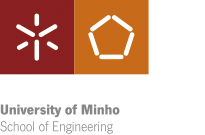Monday, 1/29/2018
The University of Minho (UMinho), through the Pole
for Innovation in Polymer Engineering (PIEP), is a national pioneer in a
project of scientific and technological support to CERN.
The UMinho recently
started a project with CERN, through the Pole for Innovation in Polymer
Engineering (PIEP), the interface unit of the university. This collaboration is
part of an agreement signed in September 2017 between the two institutions
aiming at evaluating the state of conservation of the power and signal wiring
of that institution.
The European
Organisation for Nuclear Research, known as CERN (Conseil Européen pour la
Recherche Nucléaire), is the largest laboratory of particle physics in the
world, and is located in Meyrin, on the Franco-Swiss border. The cooperation aims
at developing methodologies to evaluate possible cabling renewal needs, in
order to forecast maintenance operations in a timely manner and minimise their
duration, as they require the accelerator to stop working. Shutting down the
accelerator affects the availability of this unique equipment to researchers
from the most diverse institutions around the world.
“In this
collaboration, CERN recognised the know-how available in polymer engineering in
the Department of Polymer Engineering (DEP), in the Institute of Polymers and
Composites (IPC) of the EEUM and in PIEP, and found competent answers to the
questions related to the maintenance and renewal of accelerator wiring”, José
António Covas, project coordinator at the UMinho, explained.
Regarding
opportunities for future collaboration, José António Covas refers that “PIEP/UM
is already recognised as the entity supporting CERN in issues involving
polymers. The collaboration started with the
electrical cables,
but will certainly be expanded to other areas of intervention”, the researcher
adds. José António Covas also referred that “in the future, the possibility of
developing robotic and non-destructive methods capable of characterising
electric cables in places that are not accessible and subjected to intense
radiation is considered”.
The project
arose from a collaboration agreement signed between UMinho and CERN in September
2017, which resulted in collaboration opportunities in several Engineering domains,
namely in Polymer, Materials, Mechanical, Electronics and Computer Engineering,
among others of common interest.
The
collaboration is currently scheduled to last three years - September 2017 to
December 2020 - and is funded directly by CERN.
Created in
1954, CERN currently has 22 member states.
+
info: https://home.cern/

